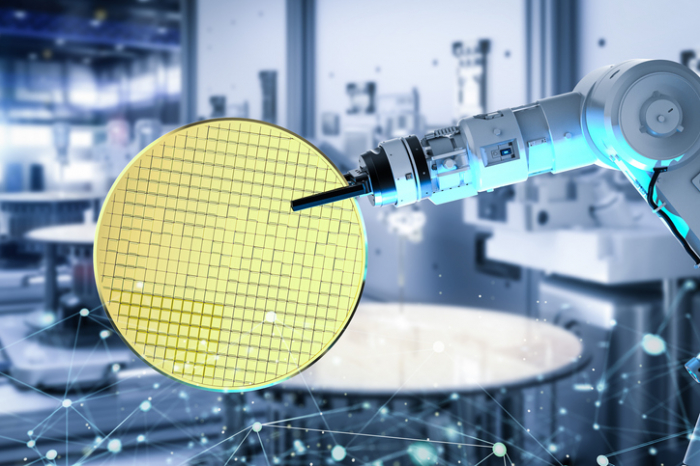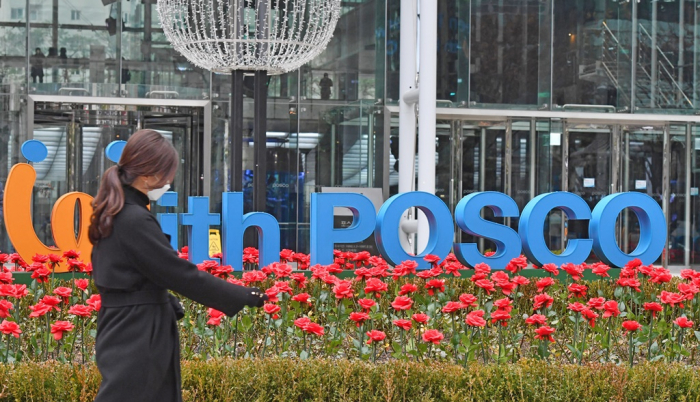Korean chipmakers
Samsung to use rare gas produced by POSCO for chip manufacturing
POSCO will develop xenon gas extraction technology by 2024 to help local chipmakers cope with supply disruptions
By Oct 28, 2022 (Gmt+09:00)
1
Min read
Most Read
LG Chem to sell water filter business to Glenwood PE for $692 million


Kyobo Life poised to buy Japan’s SBI Group-owned savings bank


KT&G eyes overseas M&A after rejecting activist fund's offer


StockX in merger talks with Naver’s online reseller Kream


Mirae Asset to be named Korea Post’s core real estate fund operator



Samsung Electronics Co., the world’s largest memory chipmaker, will significantly raise the use of locally produced xenon, a critical gas for semiconductor manufacturing, to reduce its reliance on imports.
The South Korean chipmaker said on Thursday it will receive xenon from steelmaker POSCO, a unit of POSCO Holdings Inc., from 2024.
Xenon is used for the etching and deposition of microchips in semiconductor manufacturing.
Most Korean chipmakers and microelectronic device makers rely on imports for gases, including xenon, needed for the production of high-tech semiconductors such as three-dimensional (3D) V-NAND.
Under a memorandum of understanding (MOU) signed with Samsung on Thursday, POSCO will build facilities to produce xenon at its Gwangyang steel plant by 2024 to help Korean chipmakers cope with rising gas prices caused by an unstable global supply chain.

Earlier this month, SK Hynix Inc., the world’s second-largest memory chipmaker, said it will hike the use of locally produced neon, another critical gas for chipmaking, to reduce its reliance on imports.
SK Hynix earlier this year succeeded in developing neon gas production technology in partnership with POSCO and TEMC Co., a Korean specialty gas producer.
Neon is required for excimer lasers or ultraviolet lasers that are used in a chip production process known as lithography, where machines carve patterns onto tiny pieces of silicon made by the likes of Samsung, Taiwan Semiconductor Manufacturing Co. (TSMC), Intel Corp. and SK Hynix.
The protracted war between Russia and Ukraine has caused the production of chipmaking gases to fall to worryingly low levels when the world was already grappling with a chip shortage.
Write to Ji-Eun Jeong at jeong@hankyung.com
In-Soo Nam edited this article.
More to Read
-
 EarningsSamsung reiterates no memory chip output cut despite weak Q3 results
EarningsSamsung reiterates no memory chip output cut despite weak Q3 resultsOct 27, 2022 (Gmt+09:00)
2 Min read -
 Korean chipmakersSamsung mulls new foundry plant in Europe, to expand outsourcing
Korean chipmakersSamsung mulls new foundry plant in Europe, to expand outsourcingOct 19, 2022 (Gmt+09:00)
3 Min read -
 BatteriesPOSCO Holdings to invest extra $1.1 billion in Argentine lithium plant
BatteriesPOSCO Holdings to invest extra $1.1 billion in Argentine lithium plantOct 11, 2022 (Gmt+09:00)
2 Min read -
 Korean chipmakersSK Hynix hikes use of locally produced neon gas for chip manufacture
Korean chipmakersSK Hynix hikes use of locally produced neon gas for chip manufactureOct 05, 2022 (Gmt+09:00)
1 Min read
Comment 0
LOG IN


